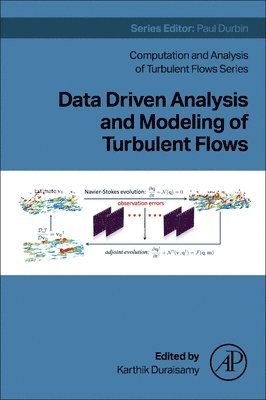Ny

2639:-
Uppskattad leveranstid 11-22 arbetsdagar
Fri frakt för medlemmar vid köp för minst 249:-
Data-driven Analysis and Modeling of Turbulent Flows provides an integrated treatment of modern data-driven methods to describe, control, and predict turbulent flows through the lens of both physics and data science. The book is organized into three parts: * Exploration of techniques for discovering coherent structures within turbulent flows, introducing advanced decomposition methods * Methods for estimation and control using data assimilation and machine learning approaches * Finally, novel modeling techniques that combine physical insights with machine learning This book is intended for students, researchers, and practitioners in fluid mechanics, though readers from related fields such as applied mathematics, computational science, and machine learning will find it also of interest.
- Format: Pocket/Paperback
- ISBN: 9780323950435
- Språk: Engelska
- Utgivningsdatum: 2025-04-24
- Förlag: Elsevier Science & Technology

